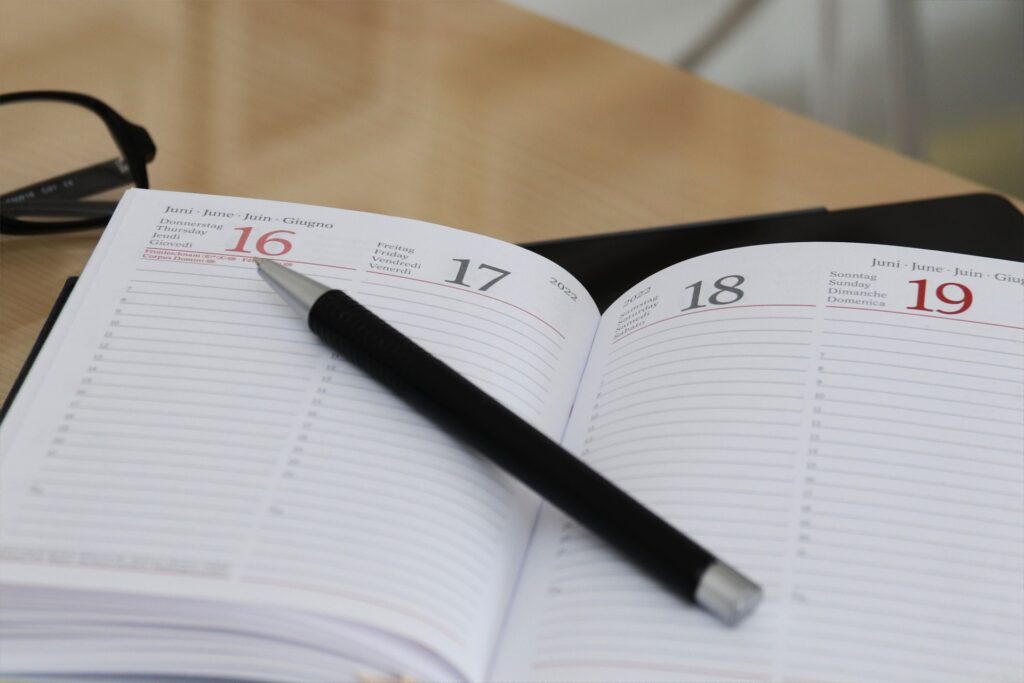Tips for Managing Your Time
Finding work can be time-consuming, particularly if you are unorganized in your approach. Organizing your time and energy can help you stay focused and increase the likelihood of your success.

A calendar is one of the most essential tools in the time organization process. Below are some tips for maximizing the usefulness of your calendar and some general time management techniques:
- Always write down your appointments—with whom you will meet, when, and where. If you don’t know the location of the business or recognize the street address, be sure to get detailed directions and write those down as well.
- Schedule appointments in the same general area on the same day to facilitate travel and take advantage of being in the neighborhood.
- If you are asked when you’d like to set interview appointments, consider Tuesday, Wednesday, or Thursday as options before Monday or Friday. Dates at the beginning and end of the week are more likely to be canceled or rescheduled at the last minute due to unexpected absences or workload demands.
- Although most interviews take less than a couple of hours, it’s best to allow extra time (more than two hours) just in case the interviewer wants to show you around the work site or introduce you to others in the workplace.
- Allow ample time between appointments for travel time and any delays on the interviewer’s part or an extended interview with a prospective employer. Usually, the safest course of action is to schedule an interview for the morning and an interview for the afternoon.
- Check your calendar frequently and simultaneously every day so you don’t forget what you have scheduled for a particular day.
- Keep notes on your calendar following appointments to indicate when to follow up with prospective employers.
.
- Don’t hesitate to print out or braille out your calendar routinely so that you have both the electronic version and a hard copy.